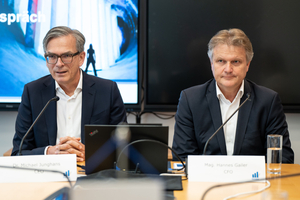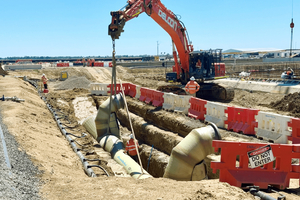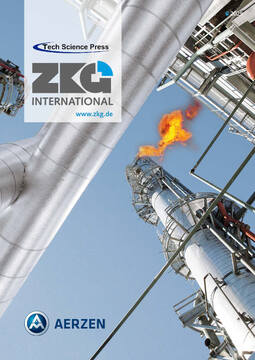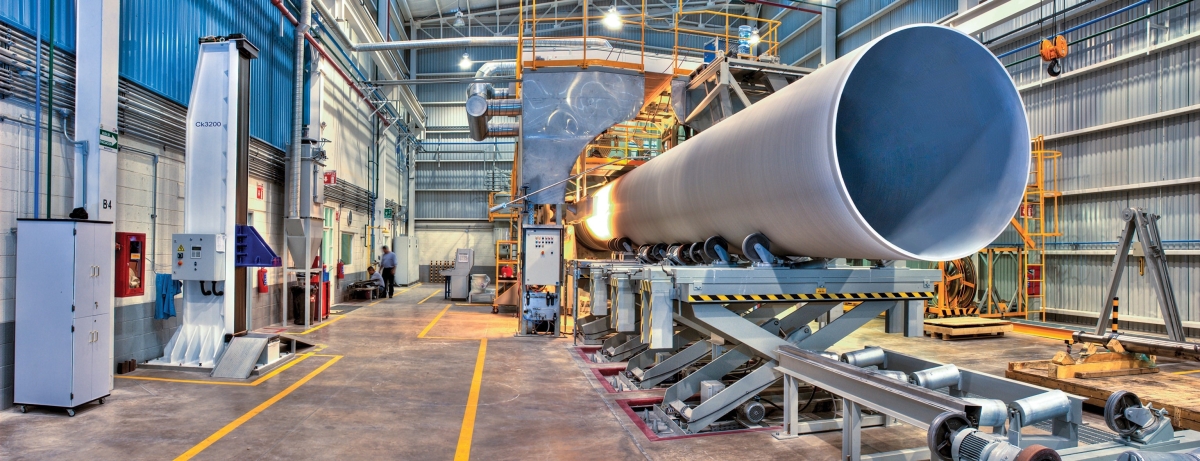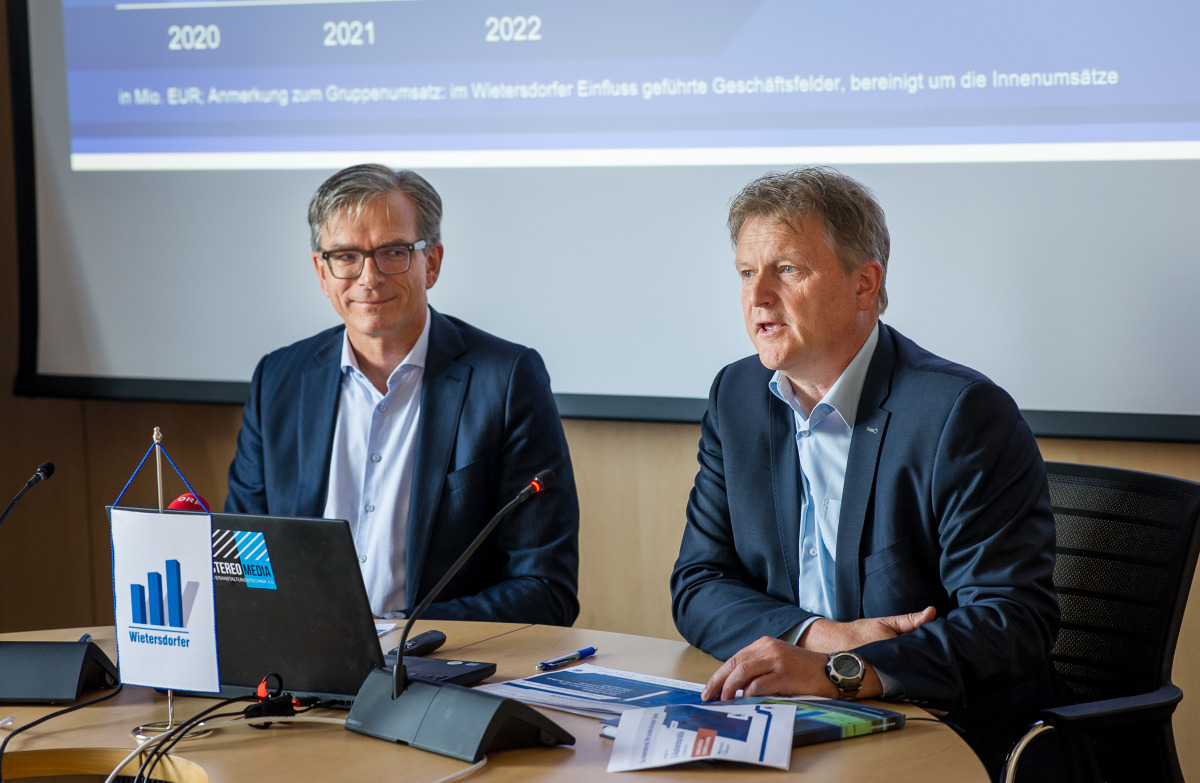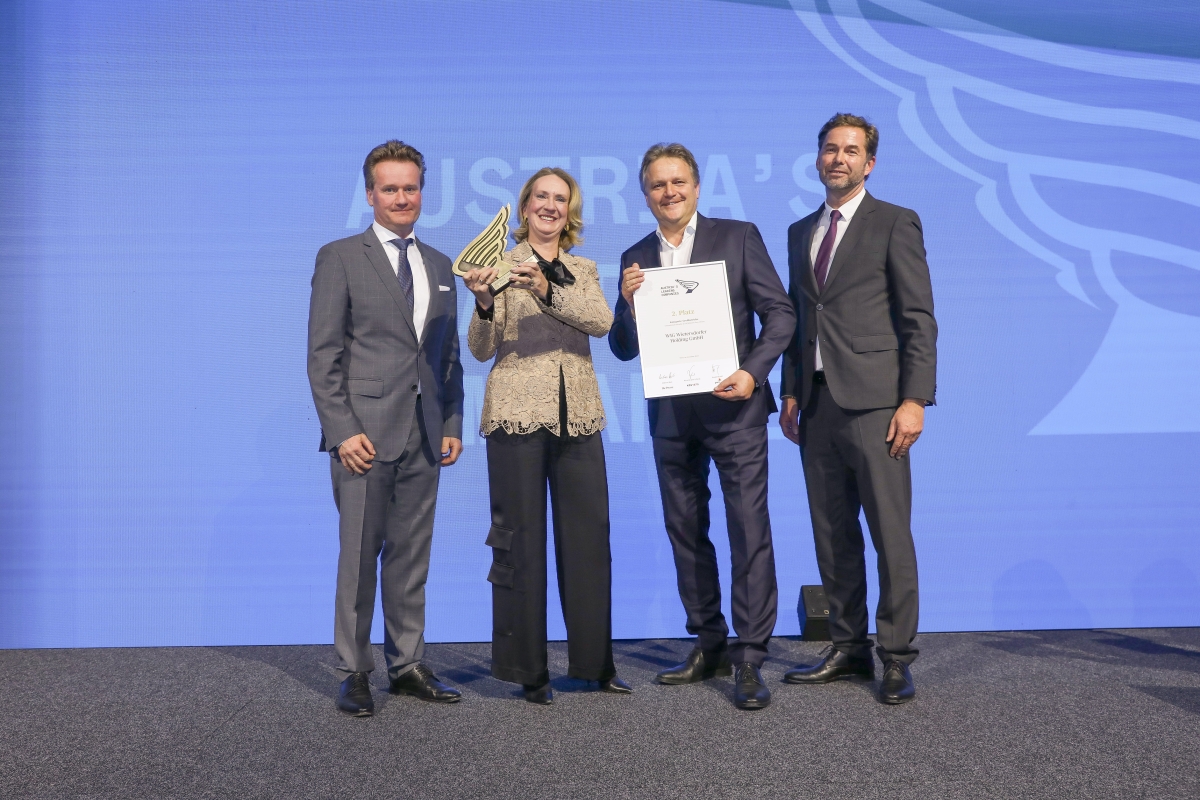Successful financial year for Wietersdorfer Group thanks to internationalization
The Wietersdorfer Group can look back on a successful 2024 financial year. Despite a stagnating construction industry and increasing competitive pressure in Europe, global group sales rose to € 1.105 million. This represents an increase of 3.2 percent compared to the 2023 fiscal year. This once again confirms the effectiveness of the consistently pursued internationalization strategy.
Positive and negative developments in the European market
With a share of sales of just under 70% and an increase of 2.9%, Europe remains the most important market for the Wietersdorfer Group, which operates in the five business areas of cement and concrete, lime, GRP pipe systems, PP pipe systems, and industrial minerals. However, regional differences are clearly visible: In Austria, sales declined by 12.4% to € 156.1 million, which is attributable to the sharp decline in the construction industry and high cost burdens. The picture is similar in Germany, but with a smaller decline in sales of 2.8% to € 147.4 million. In contrast, Italy performed well with a 17.4% increase in sales to € 107 million, and Spain doubled its sales to € 28.7 million. This development was mainly driven by government-funded infrastructure projects in the areas of drinking water, energy, and transportation, from which the group was able to benefit. The USA remains the strongest country in terms of sales within the Wietersdorfer Group, with sales of € 176.9 million, which corresponds to a 16% share of group sales, followed by Austria, Germany, and Slovenia.
International expansion compensates for European market weakness
While the construction industry stagnated in parts of Europe, the Wietersdorfer Group was able to generate significant growth momentum, particularly in Australia and Africa. In Australia, sales rose by 122% to € 3.5 million following the acquisition of RPC Pipe Systems. Compared to other continents, Australia still plays a minor role within the group. However, Australia is considered an important growth driver for the Wietersdorfer Group, whose market development by the Carinthian company has only just begun – especially as population growth of 34% is expected by 2050. The same applies to Africa: with sales of € 52.9 million in the 2024 fiscal year, growth of 67.4% was achieved. The Wietersdorfer Group primarily implements desalination plants, drinking water, and irrigation projects on the African continent. In June of this year, a third production line will be opened to accommodate future growth. In South America, sales increased by 97.1% to € 20.6 million – in connection with the complete takeover of the Latin American GRP pipe system manufacturer O-tek last year. “Our investments in international markets such as Australia, Africa, and Latin America are clearly paying off. They make us independent of economic fluctuations in Europe and open up enormous growth potential for us. We see that infrastructure is a global issue for the future, and we provide the solutions for it,” says Michael Junghans, CEO of the Wietersdorfer Group, emphasizing the strategic relevance of the internationalization strategy pursued.
Pipe systems are the strongest revenue driver
The Wietersdorfer Group’s business areas developed steadily overall. As in previous years, the GRP pipe systems and PP pipe systems business areas contributed the largest share of revenue, together accounting for slightly more than half of total revenue. A quarter of the Group’s sales came from the cement and concrete business area, followed by the industrial minerals business area, which contributed 17% to sales. The lime business area contributed four percent.
Internationalization is reflectedin personnel strategy and innovation culture
The Wietersdorfer Group invests specifically in the development and promotion of its 3670 employees worldwide. By the 2024 fiscal year, a quarter of the workforce will already be based outside Europe. “Our employees worldwide make a decisive contribution to our ability to tap into new markets and drive innovation and digital transformation in a targeted manner. They combine technical expertise with entrepreneurial spirit. This combination makes us successful as a group,” explains Hannes Gailer, CFO of the Wietersdorfer Group.
In order to attract the best talent in the future, the “Go International” student program was further expanded and opened up to international students for the first time. The number of applications has tripled compared to the previous year. For future management and expert roles, the Group is relying on an internationally rolled-out, two-year talent management program in which cross-functional project work promotes cooperation across national borders.
The new Wietersdorfer AI Contest, in which employees from all five business areas develop a project for the application of artificial intelligence, provides impetus for innovation. The diversity of approaches demonstrates the potential of digital technologies within the Group:
Poloplast (PP pipe systems): humanoid robots for repetitive production tasks
Alpacem (cement and concrete): “SENSAI” – AI-supported environmental monitoring
Amiblu (GRP pipe systems): AI-optimized pipe design
InterCal (lime): “AI Driven Smart Production” – AI tool for integrated production planning
The most promising projects will be explored in greater depth during a study trip to Silicon Valley in 2025.
Looking ahead: well prepared for a challenging 2025
The Wietersdorfer Group is facing a challenging environment in the current 2025 financial year. In addition to the continuing weakness in the construction industry, high energy and labor costs, a shortage of skilled workers, and regulatory complexity in core Europe, the recent tariff dispute is a particular cause for concern. Initial protectionist measures could have an impact on international supply chains and sales markets in the medium term. Nevertheless, the company‘s management remains confident: “We are well prepared for 2025. Our diversified international positioning, the targeted development of our employees, and our clear focus on innovation and digitalization give us the necessary stability and future orientation to operate successfully even under difficult conditions,” Junghans and Gailer conclude.

